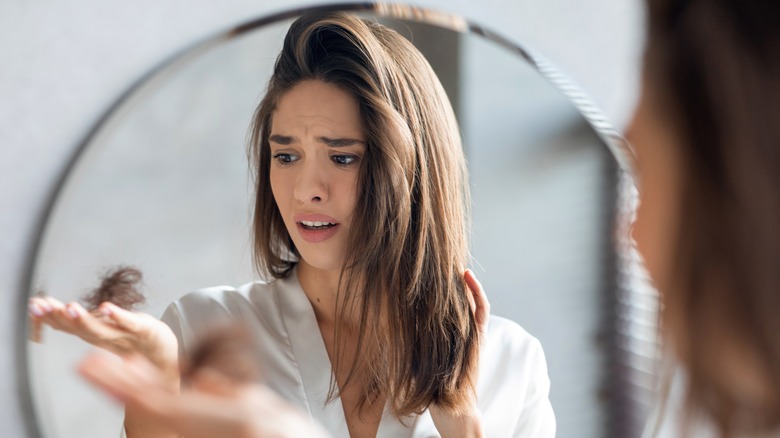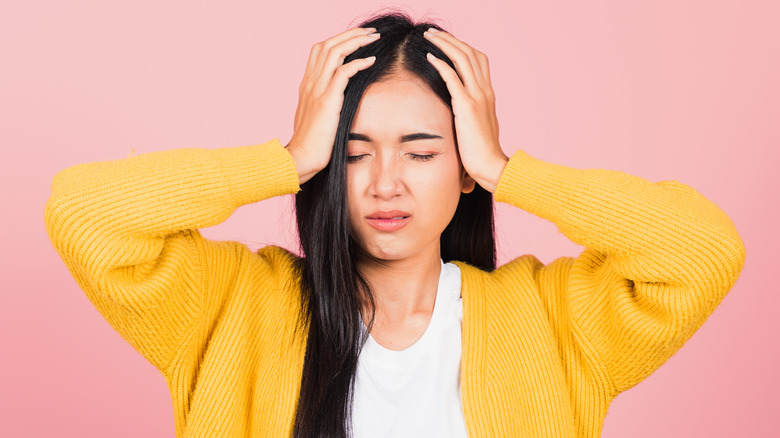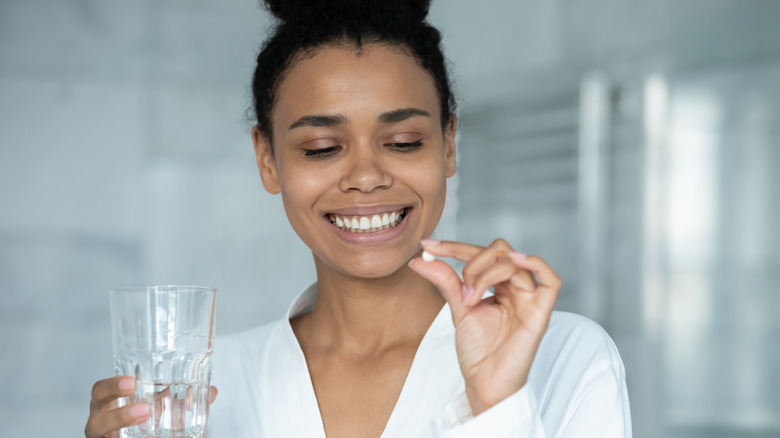Can Low Iron Levels Contribute To Hair Loss?
Iron deficiency is a common problem that occurs when there is a lack of healthy red blood cells to carry oxygen to the body's tissue. If you are lacking iron in your diet and body, you likely aren't producing enough red blood cells to keep your body fully oxygenated, which causes iron deficiency anemia.
Some common reasons for developing iron deficiency anemia are heavy menstrual periods, bleeding in your GI or urinary tract, blood loss stemming from surgery or injury, or frequent blood donations or testing. Issues such as Crohn's disease, celiac disease, inflammatory bowel disease, and genetic disorders may also stop your body from properly absorbing iron.
This can leave you feeling fatigued and weak. Other symptoms include physical symptoms such as headaches, sore tongue, chest pain, shortness of breath, brittle nails, shortness of breath, dizziness, fast heartbeat, and cold hands and feet. Other signs that you may be suffering from an iron deficiency are craving strange substances like dirt, starch, paint, or clay. Pale skin, bruises, and chills are also symptoms of iron deficiency. Another big issue that some people experience from lack of iron is hair loss.
How iron deficiency impacts your hair
There are many reasons for hair loss, including illness, genetics, wearing tight hairstyles, hormone issues, stress, diet, and more. However, one reason your hair could be thinning may be due to an iron deficiency. In fact, the problem is so common that it's one of the first things that doctors test for when looking for reasons behind hair loss. "One of the first steps in diagnosing any hair loss or thinning in my practice involves checking ferritin or iron levels in the blood," dermatologist Dr. Vladyslava Doktor told Byrdie. "Iron deficiency that causes anemia can directly affect hair growth and thinning."
To begin treating iron deficiency hair loss, you'll likely have to undergo blood tests and figure out the reason for your iron deficiency. "There are some studies revealing the importance of iron for hair shaft integrity, meaning the strength and thickness of the hair," dermatologist Dr. Rina Weimann said. "Low iron levels may be linked to brittle hair and frequent hair breakage."
Thinning hair, especially if connected to any other iron deficiency anemia symptoms, should be brought to the attention of your doctor so that a treatment plan can be put in place for getting your iron levels and your hair health back on track.
How to increase your iron levels
Treating iron deficiency depends on the severity of the case. However, for many, it can be as simple as adding more iron into their daily lives. One way this can be done is by taking iron supplements that will help give you the boost of iron you need in your blood. These supplements should be taken on an empty stomach to best be absorbed by the body, and will likely need to be used for an extended period of time. Adding vitamin C along with iron may also help you absorb the supplement. So opt for a glass of orange juice when taking the pill.
Another way to get more iron into your body is by changing your diet. There are many ways to add iron to your food intake, and that starts with eating foods that are rich in iron such as red meat, dried fruit, nuts, dark leafy greens, and foods like cereal that are fortified with iron. Cooking with cast-iron cookware can also help you boost your iron levels, as it allows small traces of iron into your food and can improve your levels.
Treating the cause of your iron deficiency should be a top priority, as well as taking the steps to give yourself more of the natural mineral to aid in a healthier and happier life.


